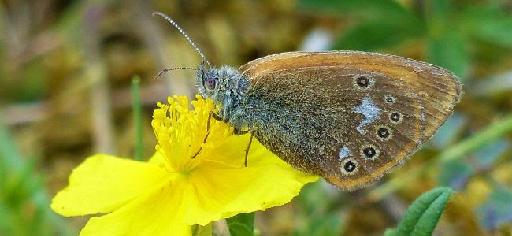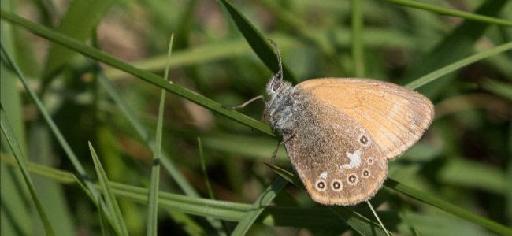A small butterfly long thought to be extinct in Belgium, the Chestnut heath, was spotted at the end of June to the south of Entre-Sambre-et-Meuse in Wallonia, conservation association Natagora announced Tuesday.
This unexpected return was probably helped by the warm temperatures of recent years, the association explained, adding that under the correct conditions the species could re-establish itself permanently in Wallonia.
The return, first documented by a photo, has been validated by experts and then confirmed by observations made on-site by naturalists, Natagora explains.
"At the moment, only one individual seems to have been observed here. It is therefore difficult to say whether or not the species will be able to reestablish itself permanently in Wallonia: we will have to keep an eye on it in the years to come," explained Hubert Baltus, a naturalist with the association. "This observation is nevertheless a good omen in a region that has benefited over the past 20 years from major restorations of semi-natural open habitats," said Natagora.
This return follows the same story as two other butterflies: the Potentilla skipper in 2013 and the clover azure in 2008. Both were also considered extinct for several decades before reestablishing themselves in Belgium.
In the last century, the Chestnut heath was still found in Famenne, the Ardennes and Lorraine, even though it seemed already uncommon. This species similar to the small heath, abundant in Belgium, disappeared from the country in the 1990s. Today, the Chestnut heath is present in France, where it is not endangered nationwide even though it is on the red list in several of its regions.
The organization believes that the butterfly's return is most likely linked to the high temperatures of recent years. In the face of climate change, species adapt by gradually shifting their territory. "In the event of global changes, the challenge will be to provide us with sufficient capacity to accommodate these species as they move northwards," concluded Natagora.
The Brussels Times


